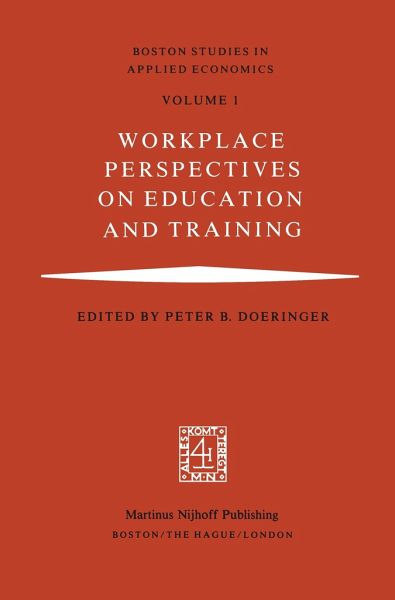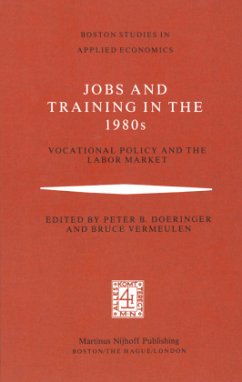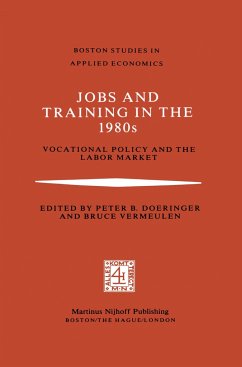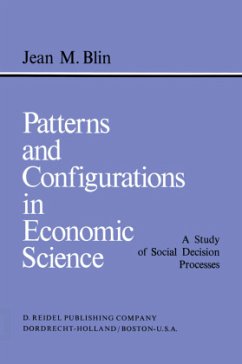
Workplace Perspectives on Education and Training

PAYBACK Punkte
20 °P sammeln!
Peter B. Doeringer Many of our approaches to education and training date back to the nine teenth and early twentieth centuries. Since that time, the skills and abilities demanded by the economy have undergone far greater change than have our training arrangements. Moreover, our ambitions for what can be ac complished through education and training policy have also increased. Not only do we expect that such policies should meet the skill needs of the na tion, but also we ask that they playa role in equalizing economic oppor tunity and in promoting greater well-being among workers. In accordance...
Peter B. Doeringer Many of our approaches to education and training date back to the nine teenth and early twentieth centuries. Since that time, the skills and abilities demanded by the economy have undergone far greater change than have our training arrangements. Moreover, our ambitions for what can be ac complished through education and training policy have also increased. Not only do we expect that such policies should meet the skill needs of the na tion, but also we ask that they playa role in equalizing economic oppor tunity and in promoting greater well-being among workers. In accordance with its mandate to increase understanding of educational processes and educational policy, the National Institute of Education (NIB) sponsored a two-day workshop in June of 1979 to examine work place perspectives on education and training policy. The workshop brought together a group of employer and trade union representatives, education and training specialists, policy analysts, and government officials to discuss research and policy questions raised by training activities at the workplace. As one might expect, the discussion ranged widely and reflected many viewpoints on the relationship between education and work. Among the participants there was consensus neither as to what should be done nor 2 PETER B. DOER INGER even as to what were the most important gaps in our knowledge about the workings of the education and training system. The discussion was helpful, however, in drawing attention to the workplace as a significant and too often neglected component of this system.












